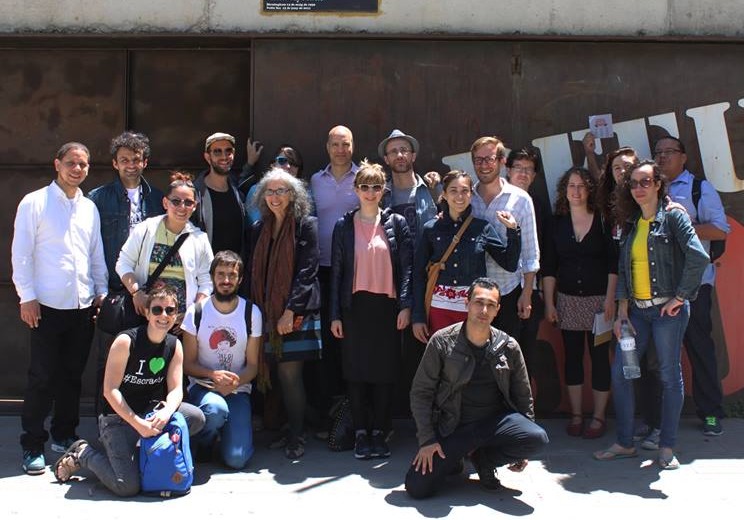US Social Movement Delegation visits Spain
In May, 21 organizers from the US participated in a social movement delegation to Spain. The trip was timed to coincide with Spain’s municipal elections on May 24th. The group learned from new political parties that seek to make electoral politics more accountable and democracy more participatory, from social movements working on housing and healthcare, and from technology and social centers that provide the infrastructure for movement building. By being in a different cultural context, the delegates were able to learn from new people, reflect on movement building challenges and successes in the US, and lay the groundwork for building a new society together.
While PODEMOS—a new left political party emphasizing direct democracy—has received attention in the English language media, perhaps even more exciting are the new confluence municipal parties. These candidacies bring together political parties, resident’s associations, and social movements in a non-hierarchical collaboration. Candidates agreed to a “Code of Political Ethics” that was discussed and approved in open, online debate. Participants of the delegation learned from candidates and party members of Ahora Madrid, Terrassa en Comú, and Barcelona en Comú and watched as results of the democratic revolution rolled in. Several popular unity candidates were successfully elected throughout the Spanish state, including in Madrid, Barcelona, Terrassa, Bilbao, Zaragoza, Salamanca, and A Coruña.
Participants also met with the Plataforma de Afectados por la Hipoteca (PAH) or the Platform for People Affected by Mortgages. With 500,000 evictions since the real estate bubble burst in 2008, the PAH has grown to over 150 branches across the country, providing social support, protesting against banks, negotiating for discharges of mortgage debt or social rent, and squatting empty buildings. Another social movement in response to austerity cuts, Yo Sí Sanidad Universal, is comprised of medical professionals and allies who engage in civil disobedience in order to treat patients who are excluded from healthcare.
Technology platforms, the movement for free culture, and a network of social centers provide infrastructure for movement building. Xnet, a hacktivist group, went after corrupt politicians through viral, crowdfunded campaigns—over 100 people are now on trial. Traficantes de Sueños, a movement bookstore and publisher, publishes under a creative commons license. The books from their imprint are available for free online, but people still purchase enough hard copies for the project to be viable. At Patio Maravillas, a social center in Madrid, different collaborative projects guest bartend once every few weeks and make money to reinvest in their project. People who invest significant time at the social center can become liberados, that is, liberated from the market and supported by the center.
To the American delegation, there is more experimentation with cooperatives, reclaiming of public space, squatting in unoccupied buildings, time banking (an alternative currency where the unit of exchange is the person-hour), people sovereignty, and autogestionado (self-organized) spaces, events, and movements in Spain. Much of this harkens back to pre-civil war times. But members of 15M (the indignados) point out that for a long time, activists were stuck in debates about who they supported during the war. The new movements broke free of that binary, saying democracia real ya. Delegates from the US, inspired by our compas, hope to build similar networks for change at home.
Jessica Powers is a writer and works at WhyHunger. @foodandfury













